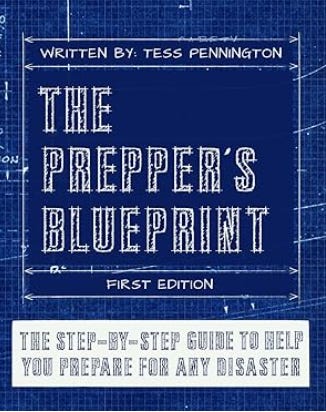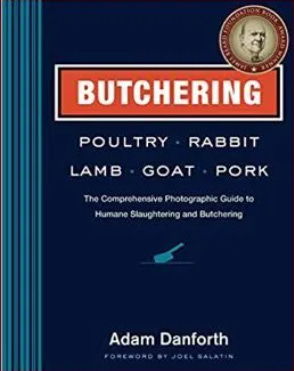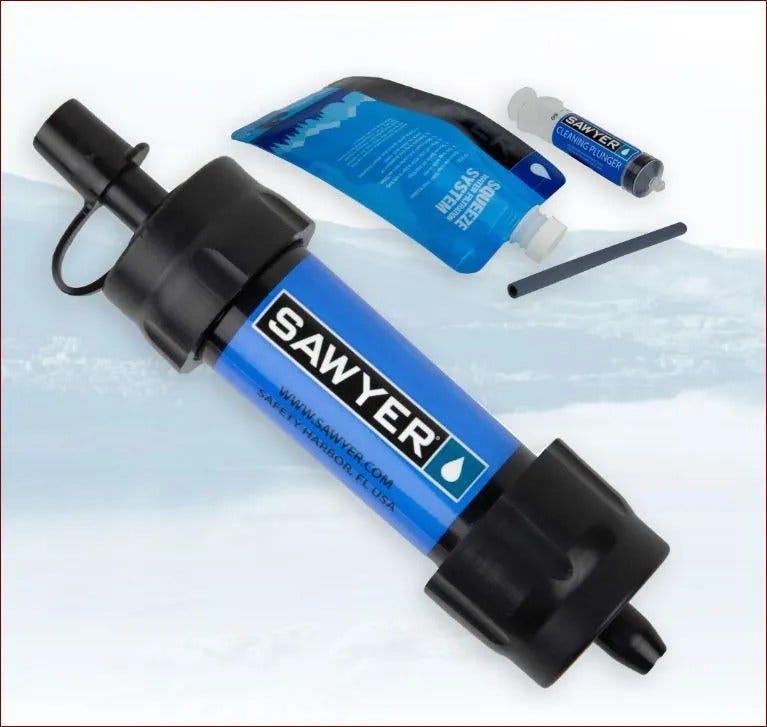Resources to physically prepare for the tribulation ahead.
Recommended Books:
The Prepper’s Blueprint: If you only get one book about preparedness, get this one. It’s comprehensive and practical.
The Resilient Gardener: Food Production and Self-Reliance in Uncertain Times, by Carol Deppe.
There are thousands of gardening books, but I keep coming back to this one. Its message is simple: There are five crops you need to survive and thrive: Potatoes, Corn, Beans, Squash, and Eggs.
3. Butchering: Poultry Rabbit Lamb Goat Pork, by Adam Danforth. This is my guide when I process chickens and livestock on my homestead. The same principles apply to processing wild turkey, quail, and deer.
4. I don’t subscribe to Latter Day Saint (LDS) theology. But with that said, I respect the Mormons for two things: (1) their family emphasis, and (2) their preparedness mindset.
There’s a lot of really-good preparedness information in version 8 of the LDS Preparedness Manual. You can buy version 8, or download version 5 free.
Recommended Websites:
https://www.ediblewildfood.com
https://revelationtimelinedecoded.com/prep
https://www.theorganicprepper.com
Preparedness Overview
Using the resources above (or resources like them) create and implement your preparedness plan. Your plan should address all the areas below:
Community
When our 21st Century electric grid goes down, either due to a solar flare or a hostile action, everyone’s daily workload will increase dramatically.
Imagine your life with no refrigeration, electric heat or air conditioning, no lights, and no power to pump gas, or use an ATM. According to this US Government report, up to 90% of Americans could die in the first year after such an event.
Successful people will form agricultural communities, similar to the Amish, helping each other and pooling skills and resources. You need other people for:
Division of labor. Everyone has different skills and abilities.
Spreading the workload: One person can’t do it all.
24/7 Security, if necessary
Mutual support and friendships
Shelter
Our bodies need protection from rain, snow, wind, and cold.
Privacy.
Water
Most sickness and deaths after a grid down scenario will be caused by water-borne illnesses. Unfortunately, the vast majority of people are dependent on public water systems, so they’re totally unprepared to process their own drinking water.
Since 2015 we’ve filtered 100% of our family’s drinking water through a ‘Berkey Light’ water filter. Berkey was ‘the gold standard’ for daily family use, but the government put them out of business in 2024. So, look for something similar in the market today. It’s a little expensive up front ($200-300), but over time it’s a lot cheaper (and more dependable) than buying bottled water.
Sawyer Mini water filters (below) are small, but powerful. And, they cost 1/10th as much as a Berkey. They filter out 99.99999 percent of all bacteria, protozoa, and microplastics from dirty water. One Sawyer Mini filter can process up to 100,000 gallons. Everyone should carry a Sawyer Mini in every vehicle, and in every bugout bag, and should know how to use it.
Food
I recommend having a minimum of one year of stored food for your family. This stored food isn’t your long-term food plan. Your homestead is your long-term plan. The purpose of your one-year’s food supply is to get you through winter until your garden and livestock can provide for your needs.
So, you need to know how to produce food. That means learning how to garden, raise poultry and livestock, hunt, fish, and safely forage the abundance of wild plants growing everywhere around us. There’s a learning curve for all these, so don’t wait. Start now, even if you’re in an NYC apartment, do what you can.
Hygiene, Health, and Medical
Be physically fit, and stay current on routine medical and dental visits
Stock up on personal hygiene items
Assemble a first aid kit. Get first aid training and skills.
Many places have a volunteer fire/rescue squad, with EMT and advanced paramedic training available to the public at a low cost (or 100% free if you volunteer to pull shifts)
Security
If you live in a city you need to have an alternate location (away from cities) to go to in case ‘rule of law’ breaks down after a disaster.
You should invest in the tools and skills required to safely and morally defend your life.
Tools
Water filtration (e.g., Berkey, Sawyer mini, etc.)
Gardening
Butchering
Wood cutting and splitting
Washing and laundry
Hunting and fishing
Livestock fencing
Off-grid Electric Power
Decide what you need if the power goes out.
For example, we don’t plan to run any appliances, HVAC, water heater, etc., if the grid goes down longer than our generator’s fuel supply lasts.
We have some small solar panels and batteries to power an RV water pump, a HAM radio, and to charge batteries for lights and communication devices, etc. Otherwise, we’ll be experiencing what life was like for thousands of years before 1900. We’ve planned for that, with the tools listed above, and practicing the skills to use them.
Transportation
If you can’t use a motor vehicle due to fuel non-availability, EMP, etc., do you have a sturdy bike?
Communications
If telephones won’t work how will you communicate?
The optimum solution is a solar-powered HAM radio and the knowledge to use it
Walkie-talkies are cheap and easy to use, but range is very limited
AM/FM/Short wave radio is receive only, but it’s good to receive news, weather, music, etc.







